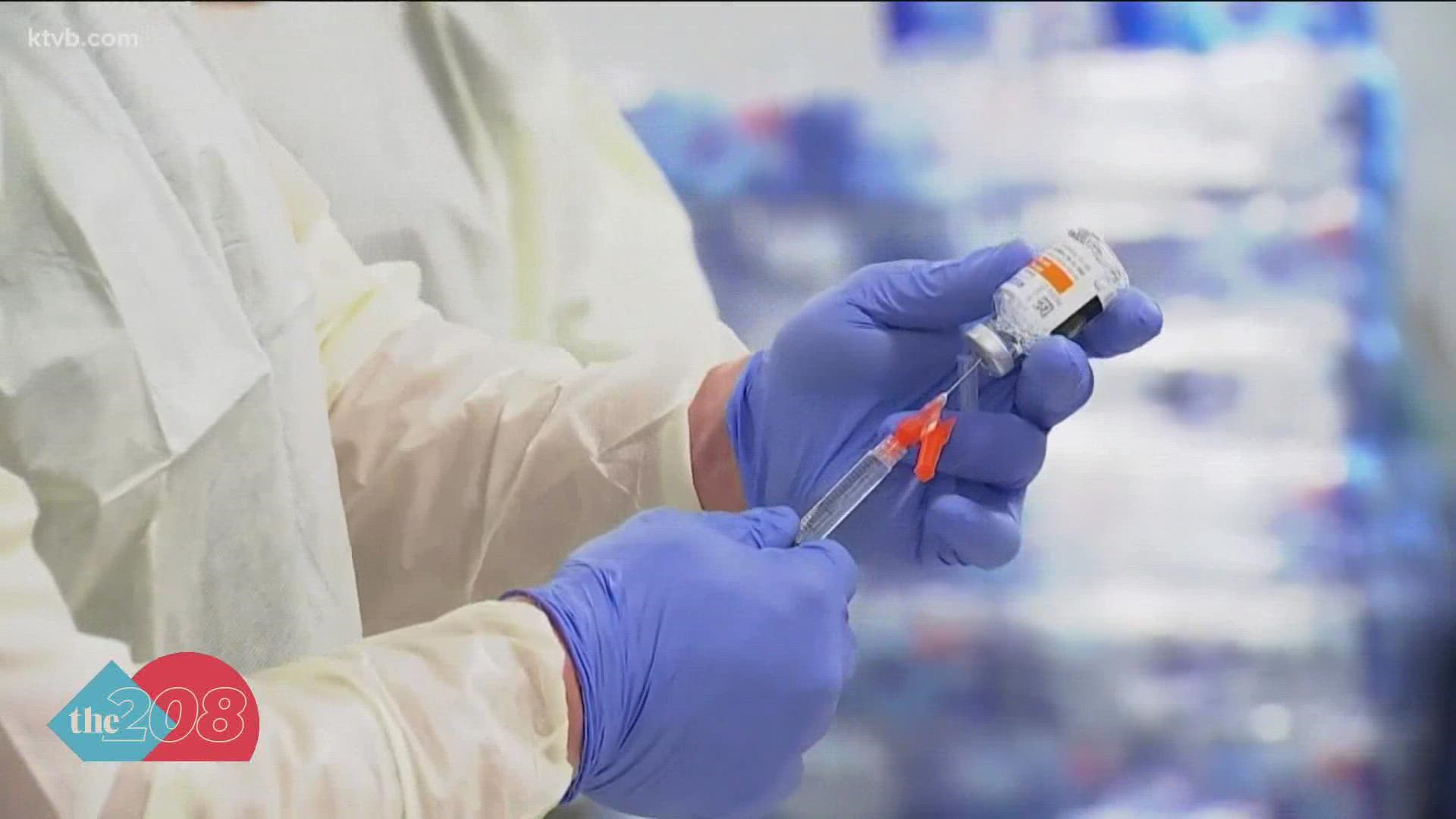BOISE, Idaho — Through the Coronavirus pandemic, monoclonal antibody treatments have emerged as a popular technology to treat people in need. Monoclonal antibodies work by attaching to the COVID-19 virus to prevent it from infecting cells.
The treatment is most effective for a person who gets COVID or for a person who is immunocompromised and exposed to the virus. Getting monoclonal antibodies is highly popular right now, just ask the Boise-based clinic Direct COVID Care.
“Yes, recent weeks it has been very busy,” Dr. Ryan Williams, Medical Director for Direct COVID Care said.
Dr. Williams said after ramping up in November, they are now seeing a lot of interest in monoclonal antibody treatments from eligible patients.
“We are able to fit in, roughly, about 30-40 patients a day," Williams said. "Usually just three days a week due to supply and staffing."
As Dr. Williams referenced, monoclonal antibody treatments are limited for now. Each state only gets a set allocation to treat eligible people. New research shows that only one of the three monoclonal treatments available in the U.S. is highly-effective against the very contagious omicron variant. That drug is called Sotrovimab.
Two weeks ago, it appeared Idaho would only be allowed to order Sotrovimab going forward, cutting down on the supply available to treat people. The reason being that the other two drugs simply were not as effective, at this point. But now, it appears the course is changing.
“They’ve had a change of heart,” State epidemiologist Dr. Christine Hahn said.
Dr. Hahn said providers in Idaho have reported pretty good results using the two treatments that are not as effective against Omicron. So, they want to continue using those.
“As long as we believe that we have some areas of the state that still might be seeing delta and as long as providers are telling us that they are seeing benefit for their patients and since we have no other alternative treatment for many of those patients, we felt that the most ethical thing to do was to offer it to providers,” Hahn said.
Monoclonal antibody supply remains limited, especially Sotrovimab. However, for providers like Direct COVID Care, it allows them to try and help more people in need.
“The treatment has the most bang for its buck with the sickest patients, they qualify for the treatment," Williams said. "So, if you have many risk factors that are associated with your underlying medical conditions and you have COVID then the treatment will help you the most."
With that said, Hahn explained there is an important caveat Health and Welfare is relaying to providers.
“We have recommended to them that they have a frank discussion with their patients that if they have omicron, it is possible that a drug may not help them,” Hahn said.
Dr. Williams said at his clinic, they have seen about 80% of patients treated overall have marked improvement at 48 hours post treatment, even with recent changes in variant. Before the Omicron variant, it was probably 85-90% improvement.
Dr. Williams said the staff at Direct COVID Care has been incredible as they too have worked long days treating as many people as possible.
“It’s been really rewarding for us and the staff to treat these patients," Williams said. "48 hours after we treat them we give them a call and the majority of patients feel a lot better within 48 hours. So it’s been really rewarding, we are really grateful to have this clinic up and going."
Join 'The 208' conversation:
- Text us at (208) 321-5614
- E-mail us at the208@ktvb.com
- Join our The 208 Facebook group: https://www.facebook.com/groups/the208KTVB/
- Follow us on Twitter: @the208KTVB or tweet #the208 and #SoIdaho
- Follow us on Instagram: @the208KTVB
- Bookmark our landing page: /the-208
- Still reading this list? We're on YouTube, too:

